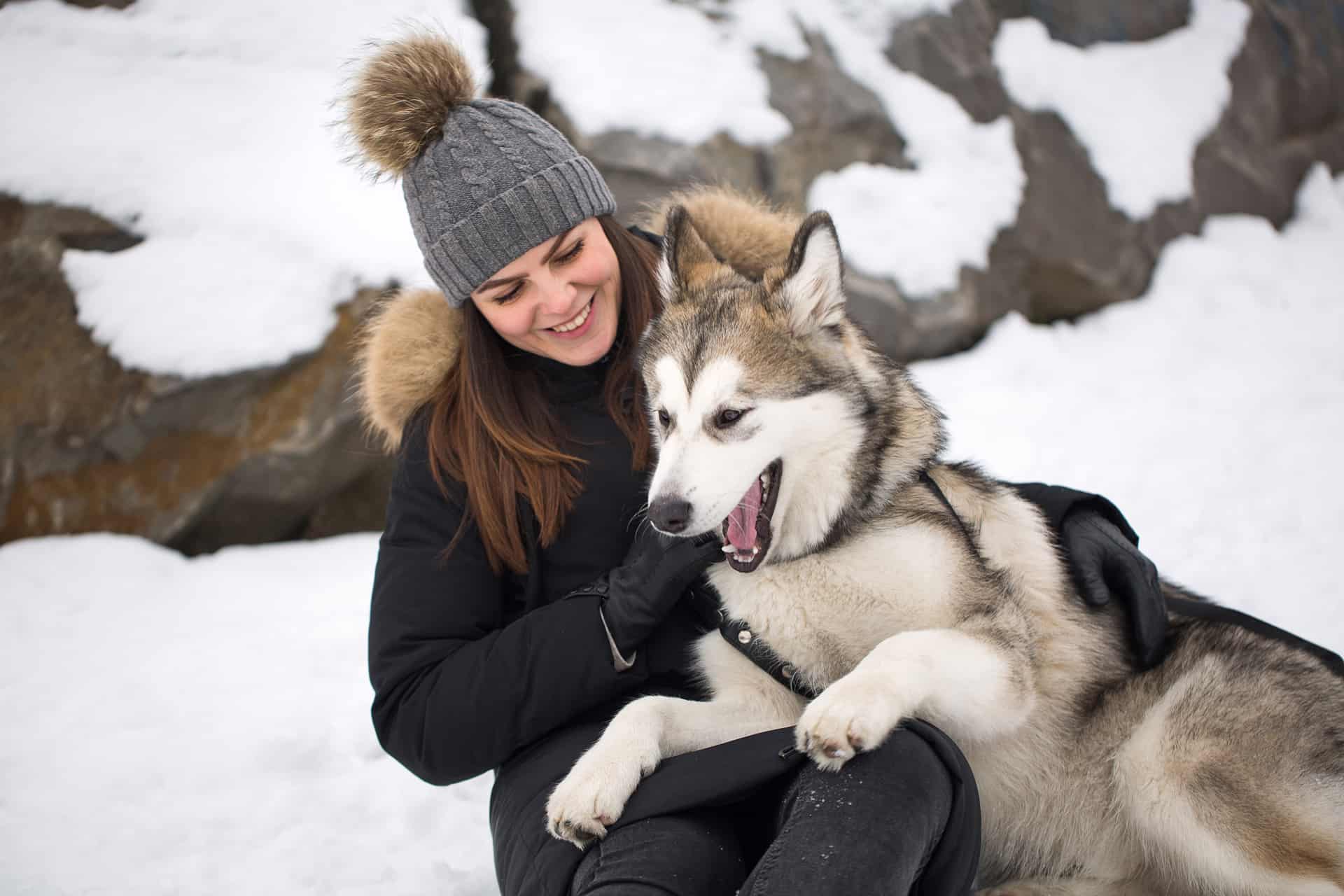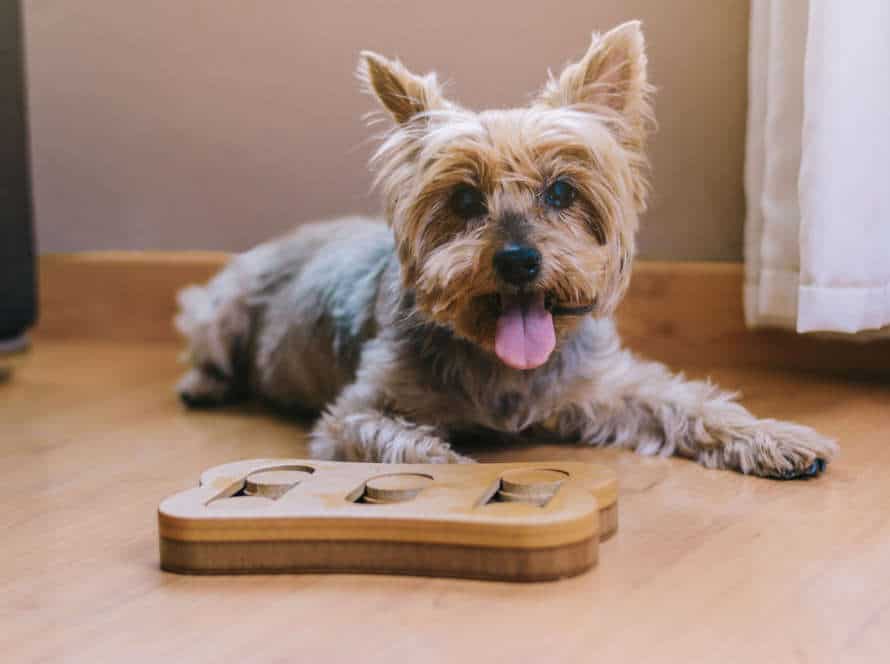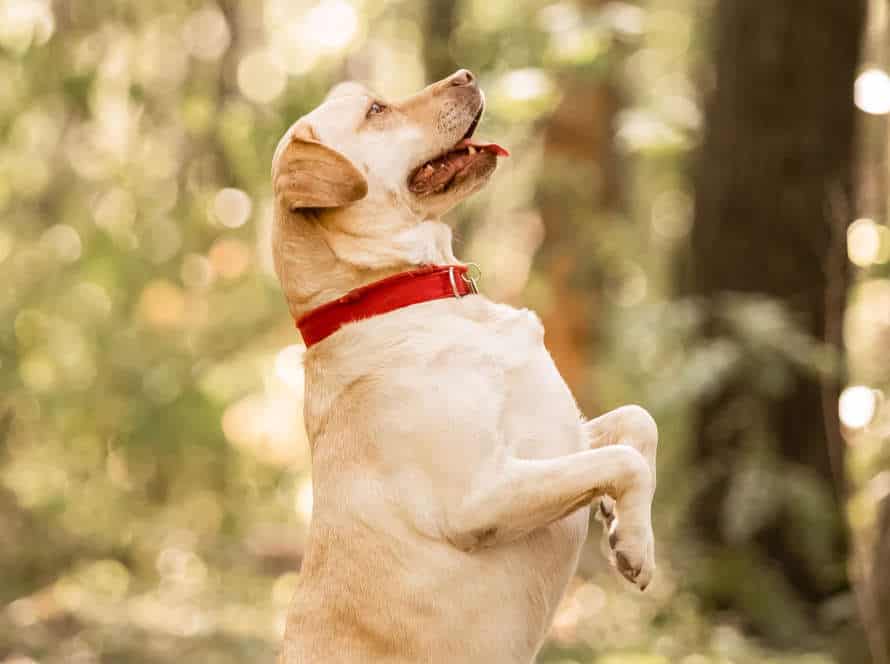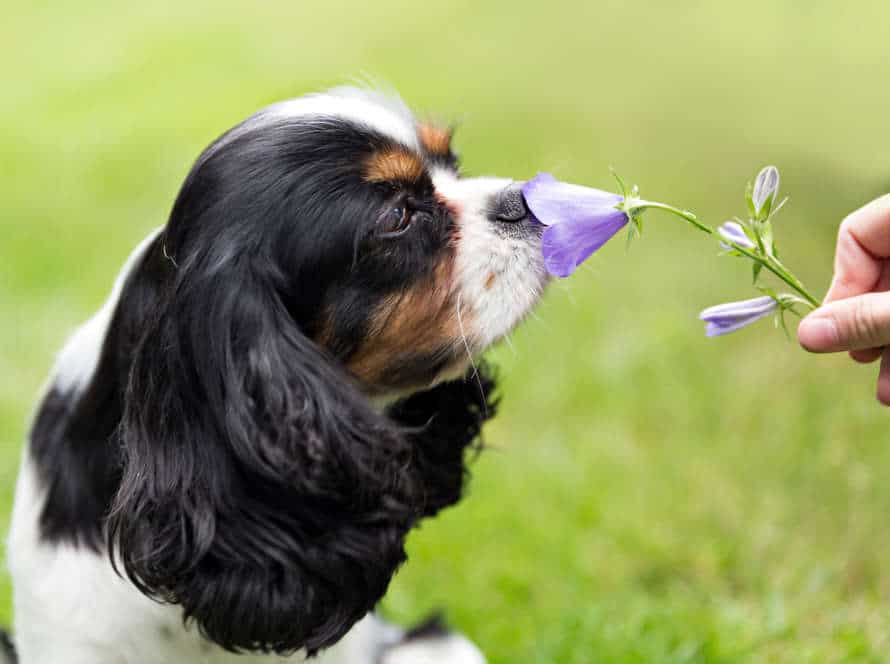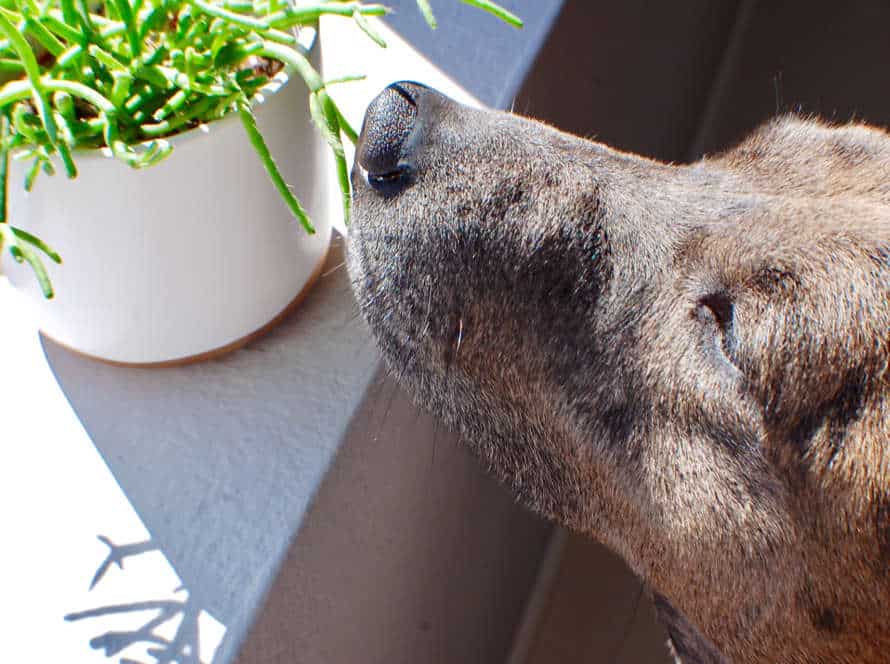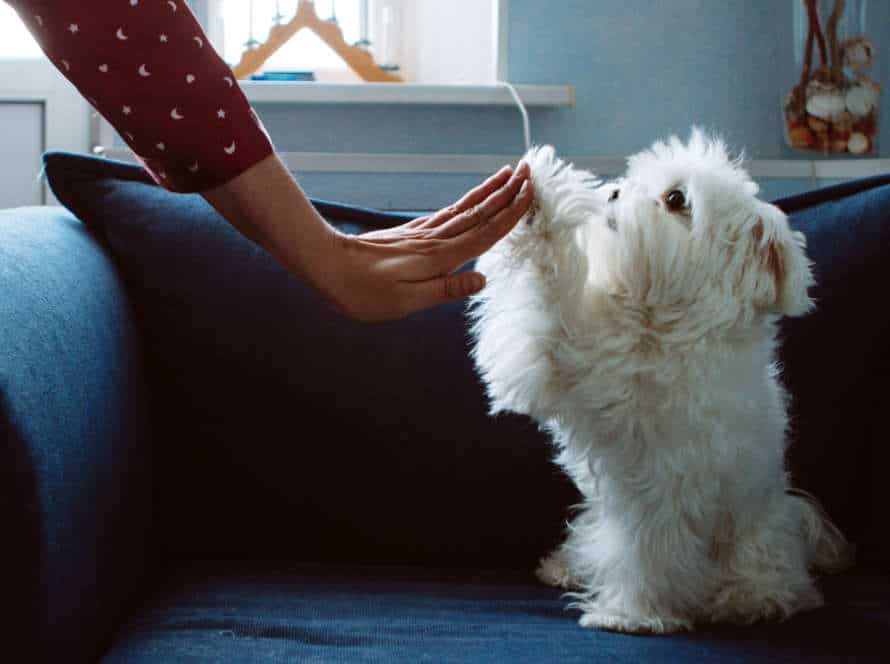Adult Dog Socialization: Building Confidence Through Play
Playing can help an adult dog build confidence and socialize better. Dogs not properly socialized as puppies often show signs of anxiety, fear, and other behavioral issues. Here are ways to use play to help your dog socialize:
- Play interactive games. E.g. tug of war and fetch. This stimulates both mind and body, making them happy.
- Find dog playgroups. Find dogs with similar personalities. Your dog will learn to interact in a safe environment.
- Regular walks. Walking your dog is great for socializing. Exercise helps them feel confident and approach new situations with curiosity.
Pro Tip: Patience and persistence are key. Keep your dog on a leash while walking. Start slowly so as not to overwhelm them. Gradually increase play and socializing time. With practice, your dog will become more confident and less anxious.
Why Socialization Is Important for Adult Dogs
Socialization is key to raising a confident and healthy pup. Even adults need socializing, to help them develop self-assurance. Socializing can teach them how to interact in a secure and positive way. Resulting in more happiness for all! Let’s look into why adult dogs need socialization, and how to do it right.
Benefits of Proper Socialization
Socialization is a must for our pup pals’ overall health. It shouldn’t just be limited to when they’re young! Here are the benefits of proper socialization for adult dogs:
- Builds confidence – Playtime and interaction with people and other dogs can help build their self-esteem.
- Reduces fear and aggression – Introducing them to new environments, people and animals helps reduce fear and aggression.
- Enhances cognitive function – Socialization activities keep their minds stimulated, preventing cognitive decline.
- Increases adaptability – Consistent socializing helps them become more adaptable and less stressed in different situations.
So, let’s give our furry friends a happy social life!
Risks of Poor Socialization
Inadequate socialization for adult pooches can cause a variety of behavioral and health problems that can really affect their quality of life. Dogs are social animals who normally seek social interaction and companionship. No proper socialization can lead to fearful, aggressive behavior, and even anxiety issues.
Here are a few of the risks linked to insufficient socialization in adult dogs:
- Aggressive and scared behavior towards other dogs or people
- Chewing, digging, and other destructive behavior
- Severe separation anxiety, resulting in yapping or destructive behavior
- Poor physical and mental health due to lack of exercise and social stimulation
Adequate socialization through play and contact with other dogs and humans can support build confidence, reduce tension, and enhance overall wellbeing in adult dogs.
How Socialization Affects Adult Dogs’ Behavior and Confidence
Socialization is essential for adult dogs. It can stop behavior troubles like fear and aggression. Plus, it helps them feel confident in different places. It also makes the bond with owners stronger. Plus, it helps adult dogs adapt to changes. Tip: Ask a professional dog trainer to make a tailored socialization plan for the adult dog’s needs and character.
Creating Positive Experiences through Play
Socialization is a must for adult dog owners. Dogs that get socialized are less likely to misbehave, be frightened or be unfriendly. Positive socialization experiences with people and other dogs can build your pup’s self-assurance and make them more mature.
A great way to do this is playtime! This is the perfect way to bond, build trust and encourage good behaviour.
Overview of Playful Socialization Activities
Playing together can really help owners and their adult pooches bond! Not only are these activities enjoyable, but they also help boost confidence and ease anxiousness. Here’s an overview of playful socialization activities:
- Fetch: A super fun game that gets both pup and owner moving!
- Tug-of-War: Make sure the pup knows who’s in charge while playing this game – it’s a great way to build confidence and reduce stress.
- Hide & Seek: Hide treats or toys around the house or yard and watch your pup use their problem-solving skills to find them!
- Agility Training: Set up an obstacle course or agility training equipment to help your pup build trust with you.
Pro Tip: Safety first! Consult with a professional trainer if needed.
Games for Building Confidence
Playing games is great for boosting your dog’s confidence. Try these fun activities!
The “Find It” Game: Hide treats or toys around the place. Start with easy spots and progress. This will give your pup a sense of achievement.
Tug of War: Playing tug of war can help shy or anxious dogs. It teaches them to stand their ground and bond with you.
Agility Games: Set up a simple obstacle course in your garden or living room. Jumping over low hurdles or crawling through tunnels helps your pup feel confident in their physical abilities.
Remember to keep playtime positive. Reward your pup with praise, treats, and toys.
Playful Socialization Techniques
Creating a pleasant experience through play is an efficient way to grow confidence and socialize adult dogs. Here are a few playful socialization techniques:
- Tug of War: This game can help dogs boost their confidence and assertiveness. Also, it teaches dogs to drop objects when commanded.
- Hide-and-Seek: This game helps dogs learn to remain still and attentive while hunting for their owner.
- Fetch: This game aids dogs to master recall and obedience skills.
It’s important to bear in mind that playtime should always be supervised. Never make it compulsory. Positive experiences through play can help build a strong connection between the dog and owner, resulting in better obedience and socialization skills.
Pro tip: Utilize rewards, such as treats or compliments, to motivate and reinforce positive behavior during playtime.
Encouraging Positive Interactions with Other Dogs
Socialization for dogs? It’s a must! Positive, consistent interactions with other dogs help them learn how to be at ease. Adult dog socialization is key, especially when building confidence and trust through play. Supervised playdates? That’s the way to go! These help build trust, not only in themselves but in other animals too. So let’s learn how to encourage positive and safe interactions between adult dogs!
Introduction to Group Play
Group play can spur positive dog-to-dog interactions and bolster confidence through play. Here are some tips to make it successful:
- Choose fitting playmates – Go for dogs with similar temperaments and activity levels.
- Create a secure space – Make sure the area is large enough for running and play, and that nothing hazardous is lurking.
- Observe intently – Keep an eye on them to make sure behaviour stays within acceptable limits. Redirect or stop any rough or aggressive conduct.
- Give them breathers – Provide periods of rest and downtime to avert overstimulation and exhaustion.
With the right direction and management, group play can be an enjoyable and beneficial experience for dogs to socialise and form bonds.
Selecting Appropriate Playmates
Choosing the right playmates for your grown-up dog is essential. It can help them to have good interactions and build their self-belief through play. Here are some factors to keep in mind when you pick a pal for your pup:
- Size & Age: Pick dogs that are the same size and age as your pet to stop any chances of getting hurt or feeling uncomfortable during playtime.
- Temperament: Look for other dogs that have the same temperament as your pup or are calmer, to make sure they get along. This will avoid any aggressive behavior or fights between them.
- Energy Level: Dogs with the same energy level will have more fun when playing together and prevent disappointment for high-energy or low-energy dogs.
- Socialization Experience: Dogs that have already been socialized and had good experiences with other animals before are more likely to behave nicely with your dog.
Always observe your dog’s behavior when they are with other canines. Be ready to step in if needed. Reward good behaviors and dodge negative reinforcement when socializing your dog.
Managing Play Sessions to Encourage Positive Socialization
Managing play sessions is essential for fostering positive socialization and interactions between dogs, in particular adult dogs who may have had no socialization experiences. Here are the steps to manage play sessions to build self-belief and promote good interactions:
- Choose a friend: Introduce your dog slowly to other dogs, with one-on-one playtime with a compatible, well-mannered dog.
- Supervise: Monitor playtime to make sure your dog and their companion are playing safely and pleasantly. Notice signs of aggression, fear, or stress, such as raised hackles or growling.
- Take pauses: Encourage breaks in playtime, where you can redirect your dog’s attention in games like fetch or offering snacks.
- End playtime: Observe for signs of tiredness and finish playtime when necessary, to stop overstimulation or aggression.
By managing play sessions, grown-up dogs can gain socialization skills and have the chance to construct confidence through secure and positive play. Pro tip: Always remember to give praises and positive reinforcement for good behavior during play sessions.
Building Confidence in High-Stress Environments
Socializing an adult pooch in high-pressure situations can be difficult. To create a secure and pleasant atmosphere, it is essential. This will help your dog’s self-esteem grow. Positive reinforcement and play are the best methods to make your mature pooch feel relaxed and assured in novel settings. This article will show the top strategies for boosting your adult canine’s confidence in high-stress environs.
Introduction to Different Situated Environments
Environments make a huge difference in building confidence in adult dogs, especially during socialization. Try these situations:
- Playground: Your pup can explore, meet other dogs, and learn commands.
- Beach: Go walking and playing, and your pup gets new sensory experiences and strengthens your bond.
- Camping/Hiking: Challenging and new sounds, smells and places.
- Agility Course: Builds trust and boosts problem-solving skills and confidence.
By incorporating these into your pup’s life, he’ll be more confident and socialize better.
Pro Tip: Keep watch of your pup’s body language and stress. Make sure he’s having a good time.
Positive Reinforcement Techniques
Positive reinforcement techniques are a powerful way to boost confidence in high-stress environments. And make adult dog socialization less daunting for your furry buddy.
Here’s how you can use play to build trust in your pup:
- Create a secure and low-stress atmosphere for your dog.
- Reward good behaviour with your pup’s much-loved toy or treat during training and socialization exercises.
- Allow your pup to take the lead during playtime, and promote exploration and interaction with new people, stuff and places.
- Take regular breaks to stop overwhelming your pup. And make sure each session ends on a positive note.
Consistency is key. So, integrate these positive reinforcement techniques into your dog’s daily routine to build long-term confidence and trust.
Building Trust and Confidence in High-Stress Environments
For great results in any situation, it’s important to create trust and confidence in high-stress environments. When it comes to adult dog socialization, play can be a great aid. Here’s how:
- Choose a place where your pup is safe and feels secure.
- Start with basic activities, like fetch and tug-of-war, to establish trust and confidence.
- Progressively make the games more complex, such as obstacle courses or scent games.
- Praise and reward your pup to reward good behaviour and build trust.
- Watch your pup’s behaviour and stress levels during play and adjust accordingly.
Pro tip: Through play, engage your pup’s mind and body – this will help reduce stress and anxiety, as well as build trust and confidence over time.
Taking a Proactive Approach to Socialization
Approach socialization in a positive way. This helps adult dogs feel secure and relaxed. Positive reinforcement and play is the key to helping them manage new experiences. Here, we will look at the benefits of being proactive with socialization. Plus, discover how play and positive reinforcement can help make your pup feel more confident.
Proactive Ways to Socialize Your Adult Dog
For adult dogs, proactive socialization is key. It builds trust, confidence and reduces anxiety.
Here are some ways to do it:
- Playtime. It helps build confidence, reduce anxiety and promote good behavior around people and other dogs.
- Positive reinforcement training. Reward your dog when they behave well in public and around people/dogs. This will reinforce good behavior.
- Controlled exposure to new environments. Gradually introduce your dog to new places like parks, cafes, shops etc.
- Socialization classes. Let a professional trainer supervise your dog’s interaction with others in classes.
Pro tip: Socialization is a long process. Even if you start late, just go slow and increase their exposure to people, other dogs and environments.
Prevention of Unwanted Behaviors Through Socialization
Socialization is essential for preventing bad behaviors in dogs. Playing can help adult dogs build trust and confidence! Here are some tips:
- Start gradually. Introduce your dog to new people, dogs and experiences.
- Reinforce good behavior with treats and praise.
- Play problem-solving games like hide and seek or nose work.
- Give your pup chances to socialize in a secure atmosphere.
- Avoid anything that could cause fear or aggression.
Socializing your adult dog can stop bad habits and help them feel more at ease in different settings. Keep socializing, playing, and strengthening your bond!
Best Practices for Successful Adult Dog Socialization
Socializing adult dogs is essential for their wellbeing and happiness. Here are the best practices to keep in mind:
- Start slow. Introduce one new dog at a time, in a controlled environment.
- Positive reinforcement. Reward your pup if they act positive around other pups.
- Confidence building. Encourage play and activity to help your pup be more confident around other dogs.
- Respect boundaries. Keep an eye on their body language. Don’t force interactions if they look uneasy.
- Be consistent. Regular and consistent socialization helps create comfort and assurance with other dogs.
Taking proactive steps for socialization can help adult dogs tackle any conduct issues and live a fulfilled, social life.
Frequently Asked Questions
1. Why is adult dog socialization important?
Adult dog socialization is important as it builds the confidence of dogs and helps them interact positively with other dogs in a given environment.
2. Can adult dogs be socialized?
Yes, adult dogs can be socialized. Training adult dogs is a lot easier than training puppies due to their maturity and ability to focus better.
3. How can I socialize my adult dog?
You can socialize your adult dog by scheduling regular play sessions with other dogs, taking them to dog parks where they can interact with other dogs or enrolling them in dog training classes.
4. Is there a right age to start socializing my dog?
It is recommended to start socializing your dog at an early age. However, adult dogs can also be socialized but may take longer to adapt to new environments.
5. What are the benefits of socializing my adult dog?
Socializing your adult dog can help boost their confidence, reduce anxiety and reduce their aggressive behavior. Additionally, it is a great way to keep them physically and mentally engaged.
6. What should I do if my adult dog shows signs of aggression during playtime?
If your dog shows signs of aggression during playtime, it is essential to stop the play immediately and remove them from the situation. Consult a professional dog trainer to help with the behavior.

